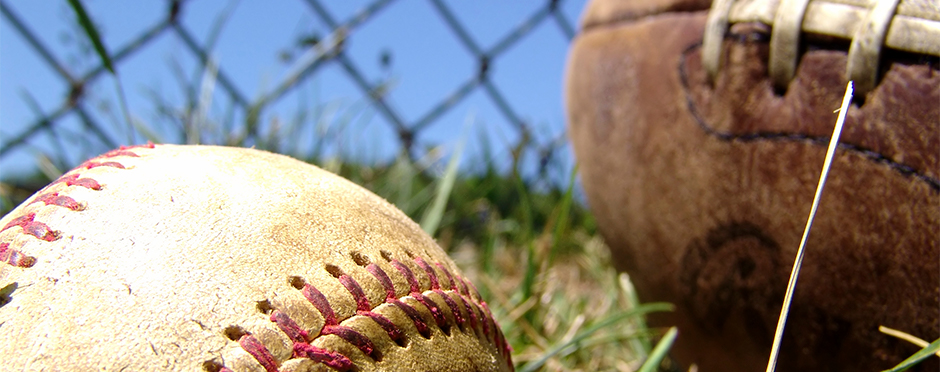
Is It Healthier to Play More Than One Sport?
Leave a CommentThere is an estimated 30-45 million school aged kids playing organized sports each year.5 Lately, there has also been a trend of young athletes training for sports at earlier ages and specializing in one sport with a goal of elite status.4 But is it healthier to play more than one sport?
What is Sport Specialization?
Sport specialization is defined as year-round training (greater than 8 months per year) for a single main sport, and/or quitting all other sports to focus on that sport. 1 Sports specialization definitions exclude athletes who perform a high volume of intense training in a single sport throughout the year but still compete in other sports simultaneously, as well as athletes who train intensely in a single sport during parts of the year with variable year-round involvement.1 Although sports specialization is trending, there may be more benefits in playing multiple sports.
The Benefits of Playing Multiple Sports
Data shows that early sport diversification is more likely to lead to valuable physical, cognitive and psychosocial skills for the young athlete.1 In fact, participation in multiple sports in developing years (ages 0-12) may lead to transfer of skills between sports.1 What’s more, multi-sport participation tends to result in better long term performance and an increase in lifetime enjoyment of physical activity and recreational sports participation.2 There is also some data indicating unorganized free play may potentially have a protective effect from serious overuse injuries.4
It is important to note that the focus should be placed on strength and neuromuscular fitness for development of the entire athlete for competence, confidence, connection and character.2 The International Olympic Committee suggests waiting until at least puberty before committing to sports specialization.2 There is limited evidence to suggest that specialization before the age of 12 is necessary for adult elite performance. Furthermore, early diversification does not appear to hinder elite level participation in sports later in life.
Risks of Early Sports Specialization:2, 3, 4, 5
- Burnout
- Lack of enjoyment
- High stress or anxiety
- Mood disturbances
- Decreased motivation
- Isolation from peers
- Lack of development of neuromuscular skills for injury prevention
- Lack of necessary rest from repetitive use of same body part
- Increased risk of overuse injury
- Reduced motor skill development
- Lost opportunity for fun
Recommendations to avoid burnout and injury:2, 3, 4
- Avoid overscheduling and excessive time commitment
- Use a valid and reliable tool to monitor signs of burnout
- Emphasize skill development and fun
- Provide opportunity for free, unstructured play
- Emphasize lifelong physical activity skills
- Avoid specialization until at least puberty
- Limit specialized training to less than 16 hours per week or do not exceed hours per week greater than the athlete’s age
- Good communication between coaches and parents
Staying Healthy and Active
There are many health benefits to playing sports for people of all ages. Regardless of specializing in one sport or playing many sports, it is important that athletes enjoy the time that they spend playing sports. Should an injury occur during sport, click the link below to schedule a complimentary injury screening at your nearest Athletico location.
The Athletico blog is an educational resource written by Athletico employees. Athletico bloggers are licensed professionals who abide by the code of ethics outlined by their respective professional associations. The content published in blog posts represents the opinion of the individual author based on their expertise and experience. The content provided in this blog is for informational purposes only, does not constitute medical advice and should not be relied on for making personal health decisions.
References:
1. Jayanthi N, Pinkham C, Dugas L, Patrick B, Labella C. Sports specialization in young athletes: evidence-based recommendations. Sports Health. 2013;5(3):251-7.
2. Laprade RF, Agel J, Baker J, et al. AOSSM Early Sport Specialization Consensus Statement. Orthop J Sports Med. 2016;4(4):2325967116644241.
3. Myer GD, Jayanthi N, Difiori JP, et al. Sport Specialization, Part I: Does Early Sports Specialization Increase Negative Outcomes and Reduce the Opportunity for Success in Young Athletes?. Sports Health. 2015;7(5):437-42.
4. Myer GD, Jayanthi N, Difiori JP, et al. Sports Specialization, Part II: Alternative Solutions to Early Sport Specialization in Youth Athletes. Sports Health. 2016;8(1):65-73.
5. Paterno MV, Taylor-haas JA, Myer GD, Hewett TE. Prevention of overuse sports injuries in the young athlete. Orthop Clin North Am. 2013;44(4):553-64.
